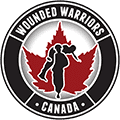Trauma-exposed professionals are highly trained individuals working in both military and public safety roles that include, but are not limited to, first responders, dispatchers, search and rescue specialists and others. The nature of trauma-exposed professional work necessitates ongoing, repeated, and serial exposures to traumatic events where individuals perform their duties according to current best practices and guidelines in their chosen professions (e.g., military, police, firefighter, paramedic etc.).
Despite having extensive and intensely focused training in many facets of the job, one area that trauma-exposed professionals do not tend to receive adequate training in is in recognizing, managing, and addressing the common and predictable effects of exposure to traumatic events. The Trauma Resiliency Training (TRT) program, developed at the University of Victoria, fills this gap in professional training for trauma exposed workers and organizations.
The Foundations of TRT
The amount of information available on trauma and its effects is overwhelming. The TRT has been designed, piloted and tested to provide the most relevant information to trauma-exposed professionals and organizations so that non-mental health professionals can understand what is being taught quickly and apply it instantly to their personal experiences as a trauma-exposed professional.
The Foundations of the TRT are:
THE BETR MODEL OF TRAUMA
THE TRAUMA FORMULA
THE FORGE METHOD
The TRT curriculum speaks to the lived experiences of trauma-exposed professionals in a way that participants recognize how the work they do impacts them in small and large ways. Participants learn that traumatization is not an inevitable consequence of exposure to trauma, but rather an ongoing risk of the job that, when managed, reduces the likelihood one will be injured. Participants learn the basic skills of trauma management to begin using immediately.
TRT FAQ
Q: How does TRT differ from other mental health awareness training and mental health destigmatization campaigns?
A: TRT directly addresses an aspect of the work that is ubiquitous for organizations employing Trauma Exposed Professionals (TExPs): repeated and chronic traumatic event exposure in the everyday course of work duties. While mental health awareness programs and de-stigmatization campaigns are important to help create conversations about issues such as depression, anxiety, relationship issues, and work-related stress etc., they often do not often directly address the impact of chronic and repeated traumatic event exposure specifically and comprehensively. TRT provides the foundation for these professions by educating TExPs on the fundamentals of trauma knowledge, providing pragmatic skills training for building awareness of the potential impact of traumatic event exposure, and by creating an environment where participants can employ the knowledge, skills, and social support to their everyday professional practice, as a higher standard of professionalism, rather than as a remedial intervention after injuries have already occurred. A guiding TRT principle is that if chronic and repeated traumatic event exposure can be dealt with more effectively and directly, other mental health issues may also be addressed more efficiently and effectively. By contrast, general mental health programs that do not address traumatic event exposure in these professions, may not be as effective as they otherwise might otherwise be. TRT is the first step in providing applied trauma education, along with basic, foundational skills training for Trauma Exposed Professionals (TExPs).
Q: What are the peers trained to deliver?
A: The TRT Peer Team are provided with all of the content necessary to deliver a 1.5hr training on the fundamentals of trauma resiliency (i.e. a PowerPoint presentation, manual, etc.).
Q: Who can attend the training?
A: Peers who are viewed by both colleagues and supervisors as suitable to the training due to personal qualities, reputation, verbal skills and leadership potential.
Q: Do TRT Peer Team members need to have formal mental health training?
A: No. The TRT curriculum is designed to be delivered by lay-persons with no formal training. The unique contributions TRT Peer Team members bring is how they relate to the information as trauma-exposed professionals in the organization.
Q: How many peers can be trained at one time?
A: With 2 TRT Facilitators per training, up to 24 peers can be trained at a time.
Q: What about follow-up for the TRT Peer Team?
A: The Peer Team will need to receive up to two debriefings per year to address any questions coming up in their presentations. This will help ensure the maintenance of consistent curriculum delivery.
Q: Who should I contact?
A: Contact Wounded Warriors Canada for more information or to book a TRT training.
PROGRAM CO-FOUNDERS
DR. TIM BLACK, R.PSYCH., NATIONAL CLINICAL DIRECTOR

ALEX STERLING, MA, RCC

TRT LEAD TEAM
DR. TIM BLACK, R.PSYCH., NATIONAL CLINICAL DIRECTOR

ALEX STERLING, MA, RCC

CLAUDINE BARRETTE

JÉRÔME BOSSÉ

